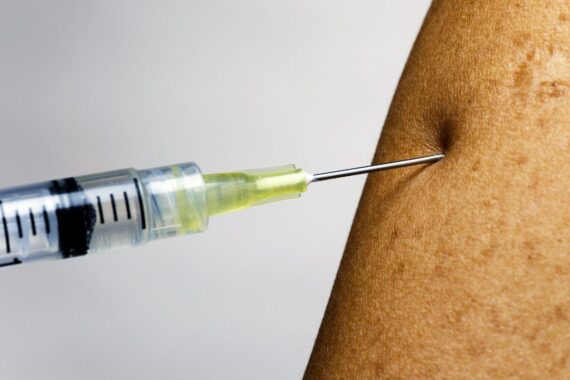A vaccine to tackle a future pandemic could be available in GP practices just four months after the threat is identified, according to NHS planning assumptions.
NHS England has this week published a new ‘framework’ for managing the response to any future pandemic, which covered the role of primary care and digital technologies.
On vaccines, NHSE said it is ‘anticipated that a pandemic specific vaccine (PSV) will be available four to six months after the pandemic agent is identified’.
This is the ‘earliest’ prediction for a vaccine becoming available, and it will depend on whether there are existing vaccines that could be ‘used as a basis’.
But this is much quicker than the 11 months needed for the Covid-19 vaccine, which had already sped up the usual vaccine development timeline of around 10 years.
As in the Covid-19 pandemic, NHSE expects that any new vaccine would be delivered primarily through GP practices, with potential support from ‘mass vaccination services’ or the ‘stand-up of community pharmacy’.
The UK is currently part of a global mission to ensure vaccines, diagnostics and therapeutics to tackle future pandemics can be deployed within 100 days of recognising the new threat.
In 2021, a group of MPs concluded that there were ‘serious errors’ in the Government’s initial response to the Covid-19 pandemic, including that it was ‘too reactive’ and needed to be more anticipatory.
However, the same report by the Health and Social care committee commended the Covid vaccination programme as one of the ‘most effective initiatives in UK history’.
Other key takeaways from NHS England’s pandemic planning include:
- The NHS App, which developed quickly during the Covid-19 pandemic, could play a bigger role in the future, by acting as a ‘single digital front door’ for patients and shifting clinical activity ‘away from face-to-face’.
- NHS England expects primary care to play a key part in any pandemic response, particularly by working ‘to ensure patients are as prepared as possible’ via ‘public health messaging’.
- The wider primary care team may have to take on more clinical responsibility and work ‘at the margins’ of their scope of practice, with ‘appropriate professional and clinical indemnity’ to be ‘discussed at a national level’.
The high-profile Covid inquiry, which is expected to publish its first official report on Thursday, heard last year from the BMA that unpreparedness for the pandemic left doctors thinking they ‘might die’.
Pulse October survey
Take our July 2025 survey to potentially win £1.000 worth of tokens














Sorry, PSV does not stand for ‘pandemic specific vaccine’, but for ‘Public Service Vehicle’ in relation to a Driving Licence examination that GPs do for Bus and Coach Drivers for DVLA.
Anyway, it is quite true that a vaccine can be available within weeks of a new virus being discovered. I could fill some syringes with one tomorrow. But that is not the point – th epoint is that Covid vaccines have now been around for quite a while, but they are still not very effective because of antigenic shift in the wild virus and some wierd anti-immune system activity that makes immunity very short-lasting and only reduce severity of illness, not prevent transmission and complications. On top of all this, basically an only partial effective vaccine, is the safety aspect. One of the first Covid vaccines has been withdrawn because of unacceptably high rate of severe side effects; others were continued despite putting workers off work for 2-3 days due to ‘mild’ side effects (which were hardly mild!). And these effects were not noticed within the first 4 months, and it took much longer than this to withdraw it!
Another rush job of creating an unpleasant vaccine of poor efficacy good further damage general public confidence in the existing vaccine programmes, and the Public Health staff promoting them, causing further damage to population herd immunity to other viruses, like MMR, etc
Is that what we want? another rush job and perception of corruption?
Longer is needed to get this right.
By the time we have another pandemic NHSE will have to give the vaccinations. General Practice will have long ceased to exist.